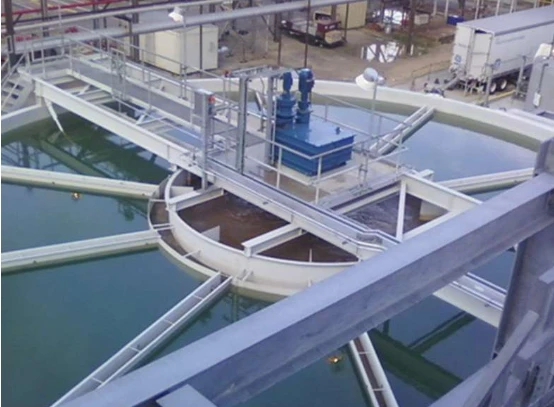
-
 Afrikaans
Afrikaans -
 Albanian
Albanian -
 Amharic
Amharic -
 Arabic
Arabic -
 Armenian
Armenian -
 Azerbaijani
Azerbaijani -
 Basque
Basque -
 Belarusian
Belarusian -
 Bengali
Bengali -
 Bosnian
Bosnian -
 Bulgarian
Bulgarian -
 Catalan
Catalan -
 Cebuano
Cebuano -
 China
China -
 China (Taiwan)
China (Taiwan) -
 Corsican
Corsican -
 Croatian
Croatian -
 Czech
Czech -
 Danish
Danish -
 Dutch
Dutch -
 English
English -
 Esperanto
Esperanto -
 Estonian
Estonian -
 Finnish
Finnish -
 French
French -
 Frisian
Frisian -
 Galician
Galician -
 Georgian
Georgian -
 German
German -
 Greek
Greek -
 Gujarati
Gujarati -
 Haitian Creole
Haitian Creole -
 hausa
hausa -
 hawaiian
hawaiian -
 Hebrew
Hebrew -
 Hindi
Hindi -
 Miao
Miao -
 Hungarian
Hungarian -
 Icelandic
Icelandic -
 igbo
igbo -
 Indonesian
Indonesian -
 irish
irish -
 Italian
Italian -
 Japanese
Japanese -
 Javanese
Javanese -
 Kannada
Kannada -
 kazakh
kazakh -
 Khmer
Khmer -
 Rwandese
Rwandese -
 Korean
Korean -
 Kurdish
Kurdish -
 Kyrgyz
Kyrgyz -
 Lao
Lao -
 Latin
Latin -
 Latvian
Latvian -
 Lithuanian
Lithuanian -
 Luxembourgish
Luxembourgish -
 Macedonian
Macedonian -
 Malgashi
Malgashi -
 Malay
Malay -
 Malayalam
Malayalam -
 Maltese
Maltese -
 Maori
Maori -
 Marathi
Marathi -
 Mongolian
Mongolian -
 Myanmar
Myanmar -
 Nepali
Nepali -
 Norwegian
Norwegian -
 Norwegian
Norwegian -
 Occitan
Occitan -
 Pashto
Pashto -
 Persian
Persian -
 Polish
Polish -
 Portuguese
Portuguese -
 Punjabi
Punjabi -
 Romanian
Romanian -
 Russian
Russian -
 Samoan
Samoan -
 Scottish Gaelic
Scottish Gaelic -
 Serbian
Serbian -
 Sesotho
Sesotho -
 Shona
Shona -
 Sindhi
Sindhi -
 Sinhala
Sinhala -
 Slovak
Slovak -
 Slovenian
Slovenian -
 Somali
Somali -
 Spanish
Spanish -
 Sundanese
Sundanese -
 Swahili
Swahili -
 Swedish
Swedish -
 Tagalog
Tagalog -
 Tajik
Tajik -
 Tamil
Tamil -
 Tatar
Tatar -
 Telugu
Telugu -
 Thai
Thai -
 Turkish
Turkish -
 Turkmen
Turkmen -
 Ukrainian
Ukrainian -
 Urdu
Urdu -
 Uighur
Uighur -
 Uzbek
Uzbek -
 Vietnamese
Vietnamese -
 Welsh
Welsh -
 Bantu
Bantu -
 Yiddish
Yiddish -
 Yoruba
Yoruba -
 Zulu
Zulu
cpvc frp pipe a reliable choice for industrial applications
CPVC FRP Pipe A Reliable Choice for Industrial Applications
In the ever-evolving industrial landscape, the demand for materials that offer durability, corrosion resistance, and versatility continues to accelerate. One such material that has garnered significant attention is CPVC (Chlorinated Polyvinyl Chloride) reinforced with Fiber-Reinforced Plastic (FRP). This composite pipe system has proven to be a reliable choice across a variety of industrial applications, revolutionizing how industries manage their fluid transport systems.
Understanding CPVC and FRP
CPVC is a thermoplastic that is known for its excellent resistance to corrosion, making it ideal for transporting aggressive chemicals at elevated temperatures. When combined with FRP, which is known for its strength and lightweight characteristics, the result is a piping solution that can withstand harsh environments while maintaining structural integrity.
FRP is created by combining polymers with reinforcements like glass fibers, which provide additional strength and stiffness to the material. This combination makes CPVC FRP pipes significantly tougher than traditional materials, such as metal and standard plastics, offering enhanced performance for the challenging demands of industrial applications.
Key Benefits of CPVC FRP Pipes
1. Corrosion Resistance One of the most significant advantages of CPVC FRP pipes is their resistance to a wide array of corrosive substances. Unlike metal pipes that can succumb to rust and corrosion over time, CPVC FRP maintains its performance even in harsh chemical environments, making it ideal for industries such as chemical processing, oil and gas, and wastewater management.
2. Lightweight and Easy to Install The lightweight nature of CPVC FRP pipes simplifies installation, reducing labor costs and enabling quicker project completion. This characteristic also allows for easier handling during transport and installation, thereby enhancing operational efficiency.
3. Thermal Stability CPVC can handle elevated temperatures up to 200°F (93°C) without compromising its integrity. When reinforced with FRP, this temperature threshold is safely increased, allowing for a broader range of applications in industries where high-temperature processes are common.
cpvc frp pipe a reliable choice for industrial applications

4. Low Maintenance Costs The durability and resistance to environmental factors mean that CPVC FRP pipes require minimal maintenance. This leads to lower operational costs over the lifespan of the piping system, which is a critical factor for industries focused on maximizing profit margins and minimizing downtime.
5. Flexibility in Design CPVC FRP pipes can be manufactured in a variety of sizes and configurations, making them adaptable to the unique requirements of different industrial processes. Customization options ensure that companies can create efficient and effective fluid transport systems tailored to their specific needs.
6. Environmental Considerations With a focus on sustainability in modern industrial practices, CPVC FRP pipes are an environmentally friendly option. They produce fewer emissions during production compared to traditional materials and contribute to safer workplace environments due to their low toxicity.
Applications in Industry
CPVC FRP pipes can be found in a multitude of industrial applications. They are commonly used in
- Chemical Processing Transporting acids, solvents, and other aggressive chemicals safely and effectively. - Pharmaceuticals Ensuring the integrity of sensitive fluids critical to drug manufacturing processes. - Wastewater Management Handling corrosive waste materials in treatment facilities. - Food Processing Meeting stringent hygiene standards and safely transporting ingredients and by-products.
Conclusion
In conclusion, CPVC FRP pipes offer an array of benefits that position them as a reliable choice for industrial applications. Their unmatched durability, excellent corrosion resistance, and adaptability make them suitable for a wide range of environments and uses. As industries continue to seek efficient, cost-effective, and sustainable solutions, CPVC FRP piping systems are set to play a pivotal role in revolutionizing fluid transport across various sectors. Whether in chemical processing, wastewater management, or beyond, this innovative piping solution exemplifies the future of industrial materials.









